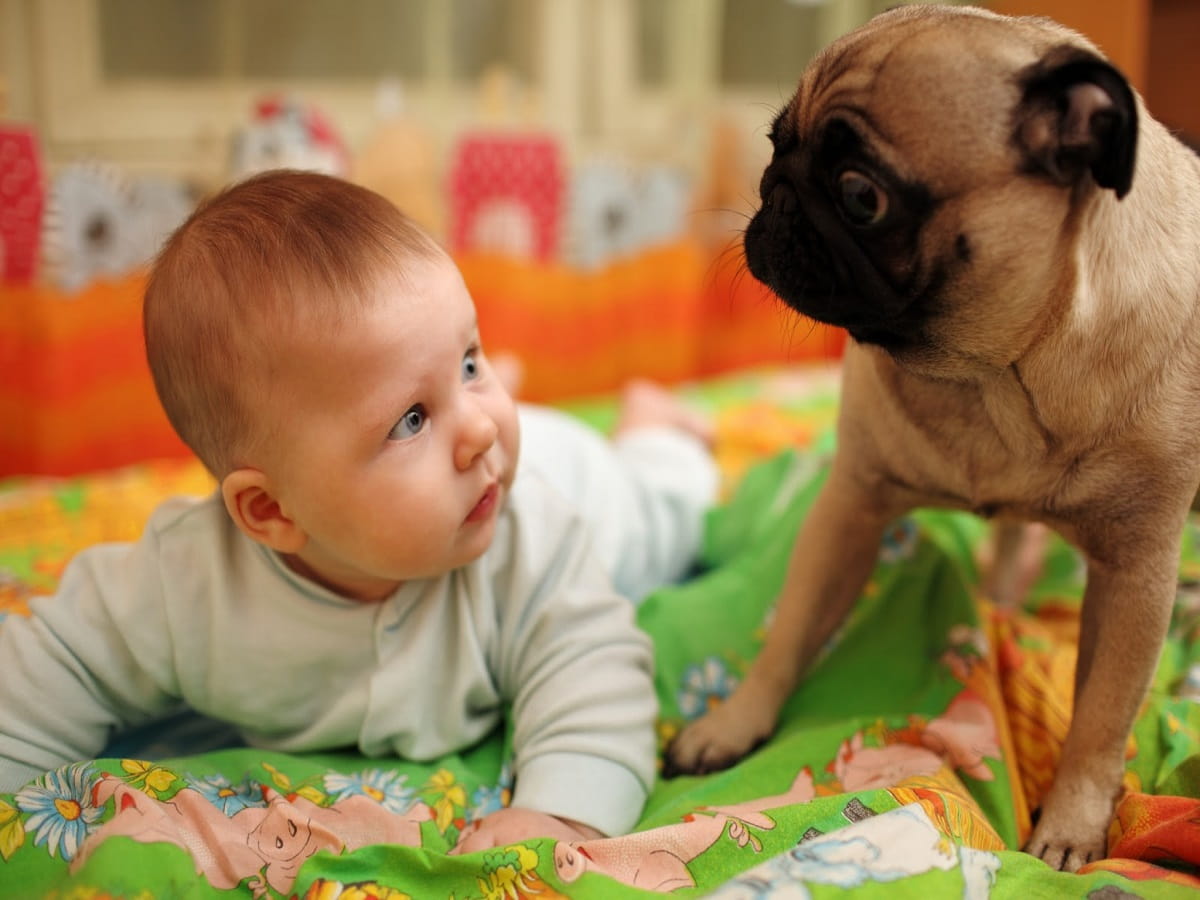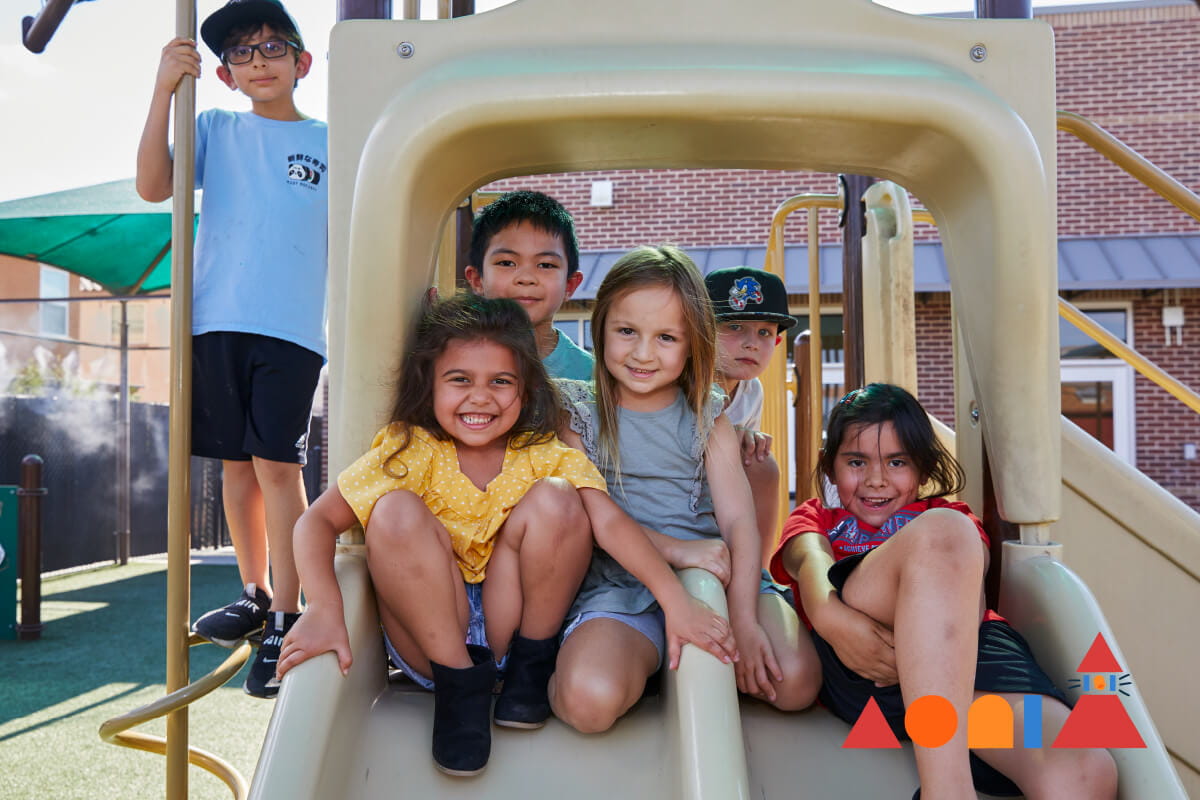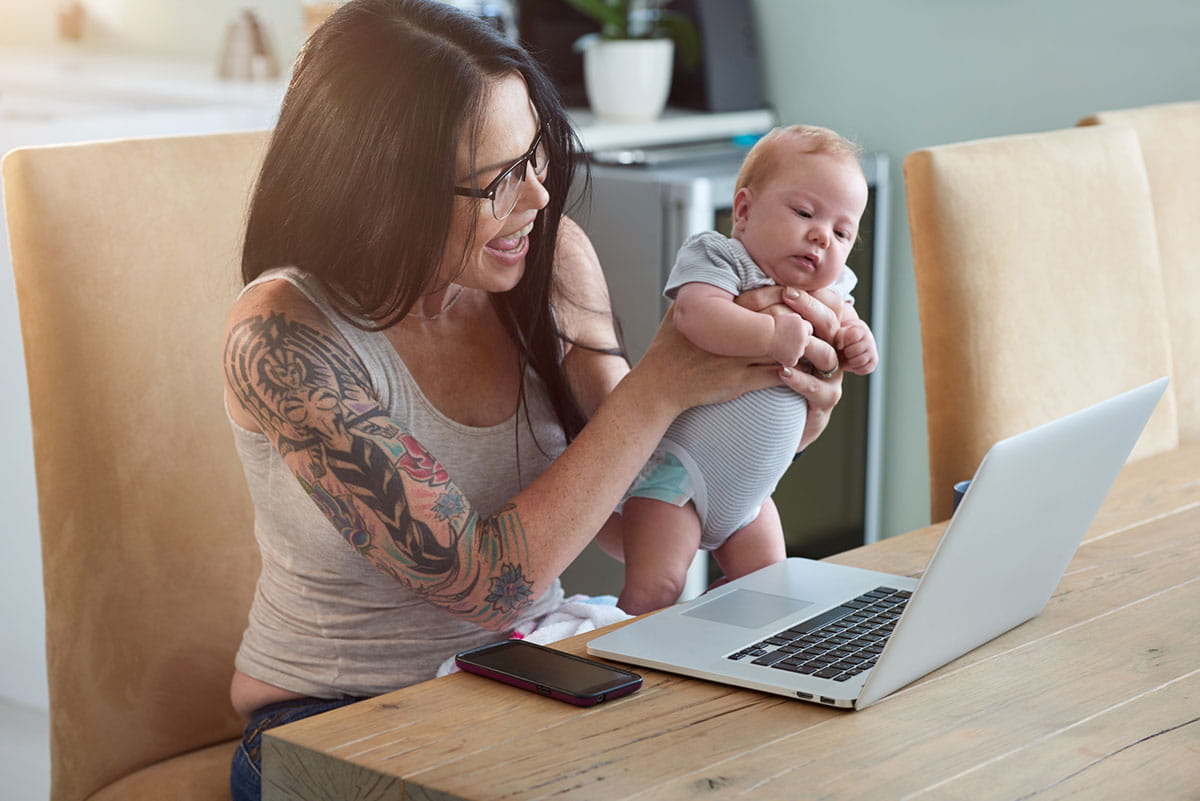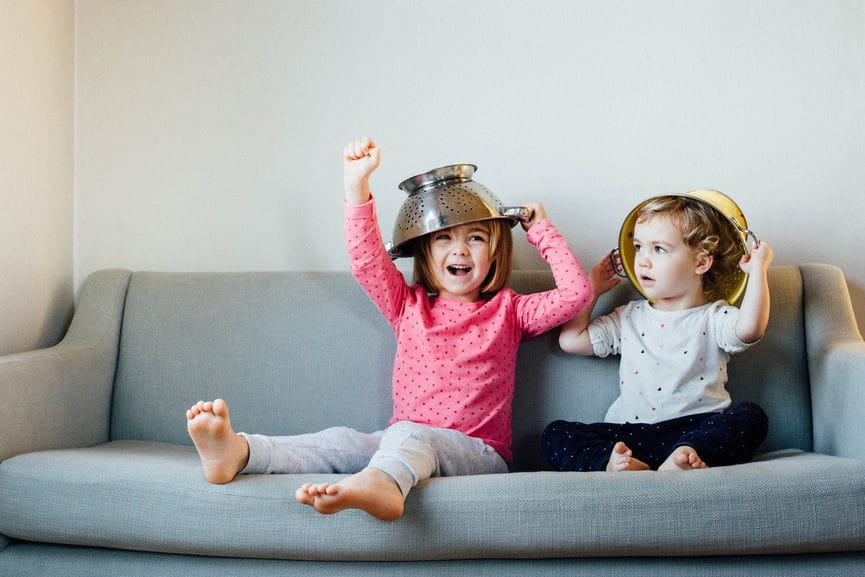When Dog Meets Baby: 10 Tips for a Smooth Introduction

My friend has a neurotic border collie; it was bred to herd sheep. Not surprisingly, she was a little anxious about how things would go when she brought her infant home for the first time. Would the dog try to nip and herd the baby, confusing her cries for the bleating of a lamb?
She isn’t the only mom with these concerns. Many parents report feeling worried about how the new dynamics between dog and baby will work.
Of course, most dogs of loving adults will become great family dogs, too. But there are things you can do to help promote harmonious relations between your faithful canine and the new love of your life.
Everyone Belongs In Our Circle
At KinderCare, we’re committed to building warm, welcoming and supportive classrooms for children of all abilities, backgrounds and experiences.
Find a center near youHere are a few thoughtful tips for managing the growing family pack.
1. Before the baby comes, head to the vet.
Take your dog to the vet for a health exam and any necessary vaccines. With a new baby in the house, the last thing you need is a pet that suddenly gets sick! Be sure to get your pet’s nails trimmed as well.
2. Address behavior issues.
Your Chihuahua may only reach your shins, but his jumping and barking could become a real problem for a baby. Address these issues with a canine behavior specialist or obedience class well before your due date.
3. Make arrangements.
Your dog needs somewhere to go while you’re in labor. Make on-call arrangements in advance with a trusted friend, family member, or neighbor! Luckily, most people are delighted to provide this kind of support even if the big day comes in the middle of the night.
4. Make an exercise plan.
Post-baby, a walk around the block is sometimes the best parents can manage, but many dog breeds need a lot more than that. Have the names of dog walkers and doggy daycares at the ready, so you won’t be scrambling to make arrangements. (Plus, a dog that gets its exercise is less likely to develop behavior issues.)
5. Introduce the dog to other tiny people.
Have friends with infants or toddlers? Invite them over for supervised play dates with your pet so your furry friends can get acquainted to babies’ noises and movements—and occasional ear tugs.
6. Do your nose work.
Dogs’ noses are 10,000 to 100,000 times more sensitive to smell than ours. Start using the shampoos, wipes, and lotions you plan to use with the new baby a few weeks before your due date to acclimate pets to your infant’s aromas.
While you’re in the hospital, send a family member home with one of your baby’s blankets from the hospital. Let the dog sniff the blanket so he can “meet” the new family member with his nose first.
8. Consider baby gates.
You might not need baby gates until your baby starts crawling, but they also are good for dogs: They allow you to separate your dog from the baby without having to close the door on him (which can make sensitive pooches feel left out).
9. At the introduction, remain calm and confident.
This is important. Pets easily pick up on feelings, so if you are anxious when the two meet, your dog may be, too. Never force a pet to get close to the baby, as it may take a dog a while to get used to the idea of a new love in your life!
A Lifetime Of Confidence Starts Here
Our teachers help every child build the confidence they need to try new things and explore the world around them.
Search for a center near you10. Your child’s safety comes first!
Don’t ever leave your baby and pet alone together, even for an instant. If you leave the room, baby does too.
While no one ever wants to part with their dog, heed the words of celebrity dog trainer Cesar Milan: “If, after working with a professional and on your own, you are still not 100 percent confident about the safety of your baby with your dog, then finding your dog another home to protect the well-being of your child and pet is a step you may have to take.”
If managing dog and baby together sounds like work, remember that dogs and pets can foster a sense of well-being and calm in your home. Spending time with pets has been shown to reduce stress and foster relaxation—which may be just what you need after a baby is born.




